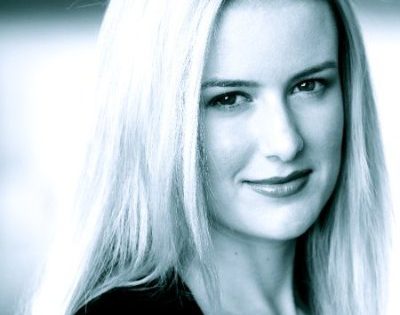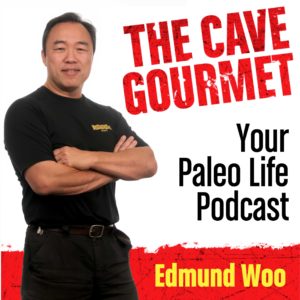Before writing the #1 Amazon Bestseller, What, When, Wine Diet: Paleo & Intermittent Fasting for Health and Weight Loss, Melanie Avalon spent years researching the mechanics of body fat regulation. Weight loss techniques became lifestyle changes for health and happiness after she stumbled upon the substantial and healthy means of weight loss via dietary composition: low-carb, paleo, and timing (intermittent fasting). It sparked a fire to perfect a dietary lifestyle for effortless weight management and health.
How did the book come about?
Growing up and in college I was always trying so many different diets to lose weight, but when I stumbled into the low-carb realm, I realized there was something going on with what we eat vs. counting calories, which changed my food paradigm. That was so effective and I felt better, which is why I became interested in the science of fat burning, food, and what we eat. Then I discovered intermittent fasting where you restrict the hours you eat each day vs. the amount of food you eat, so it’s more of a lifestyle vs. a diet. I felt fantastic and started to see health issues clear up—no more headaches, my energy levels improved, etc. Next I adapted paleo where I basically cut out grains, sugar, and inflammatory foods, and that was when all the pieces really fit together and pulled me out of the dieting mindset and into this really sustainable, amazing change. I felt so amazing I wanted to tell the whole world so I wrote a book.
12:13
Tell us exactly what intermittent fasting is and how it works:
The idea is to minimize your eating time and maximize your non-eating time. About 12 hrs after your last meal is when you start to get the benefits of fasting. Your body changes from relying on what you just ate and stored carbohydrates and switches to burning more body fat. This leads to very easy weight loss and more energy. You could skip breakfast, breakfast and lunch, dinner, just breakfast or just breakfast and lunch. You don’t restrict yourself to any amount of calories during your selected window. I basically feast every night, I’m not hungry during the day, I have tons of energy, and I don’t feel like I’m dieting.
17:05
Many people don’t realize that eating can actually make us tired because we use up a lot of energy because the body has to process that food. Humans aren’t meant to be eating all day. Historically that’s not how human beings evolved. If I eat during the middle of the day now I get tired and have blood sugar swings.
21:15
Is it possible for someone in their ’50s and older to get “cut” or “shredded” and slim — for example, a woman who’s 5’6″ and 140lbs. to be 120 lbs. through paleo and intermittent fasting?
People should be able to strive for whatever weight they desire, as long as it’s healthy for your body, so I don’t think there’s anything wrong with wanting to become super lean, for example. There are certain points of weight loss where the body is going to perceive a super low weight as a stressor and not healthy, which can be difficult to maintain. But it’s definitely possible. Paleo will take you to a very lean state. If you want to get to a super shredded state you probably need to bring in paleo plus more exercise and possibly intermittent fasting. You have to get to the point where your body has nowhere to turn but your stored body fat.
24:00
Talk to us about functional exercise.
Exercise isn’t about going and running on a treadmill per se, it’s about movement and living life and burning the energy we’re taking in. I can’t remember the last time I went to a gym but I move a lot. Rather than do strength training, I buy ankle/wrist/vest weights, and I wear them when I’m just doing tasks around my apartment like cleaning or just walking around. Do whatever makes you happy and moving, but my point is you don’t have to go to CrossFit 5x a week.
29:14
Let’s talk about wine. Red, white, organic?
I drink a lot of wine, which has always been a piece of the puzzle that kind of haunted me, but low-to-moderate intake of wine is a very healthy thing. Correlation studies show moderate drinkers have very good longevity compared to abstainers, just specifically with wine though. The compounds in grapes serve as antioxidants and support the immune system, for example. Red wine seems to have more health benefits than white, likely due to the compounds you get from red grape skins that aren’t found in white. In general I recommend organic because grapes are one of the highest produce for pesticide use, which affects the genetic makeup and it’s hard to escape that. Moderation is key though. 1/2 – 1 glass per night.
34:00
What would you recommend to adolescents or teenagers who are overweight?
It depends on the type of person they are. Do they prefer to have structure and rules and a plan laid out? If they’re the type that is more of a moderationist and doesn’t like feeling controlled, you could do a transitional approach where you slowly cut things out. Figure out who they are and then make sure they’re willing to commit, because it’s mostly about mindset and really cultivating the idea that food isn’t about restriction, it’s about what you can have and moving towards health.
38:30
Melanieavalon.com is my blog and has all my info posted there. You can get my book on Amazon.
Podcast: Play in new window | Download



Recent Comments